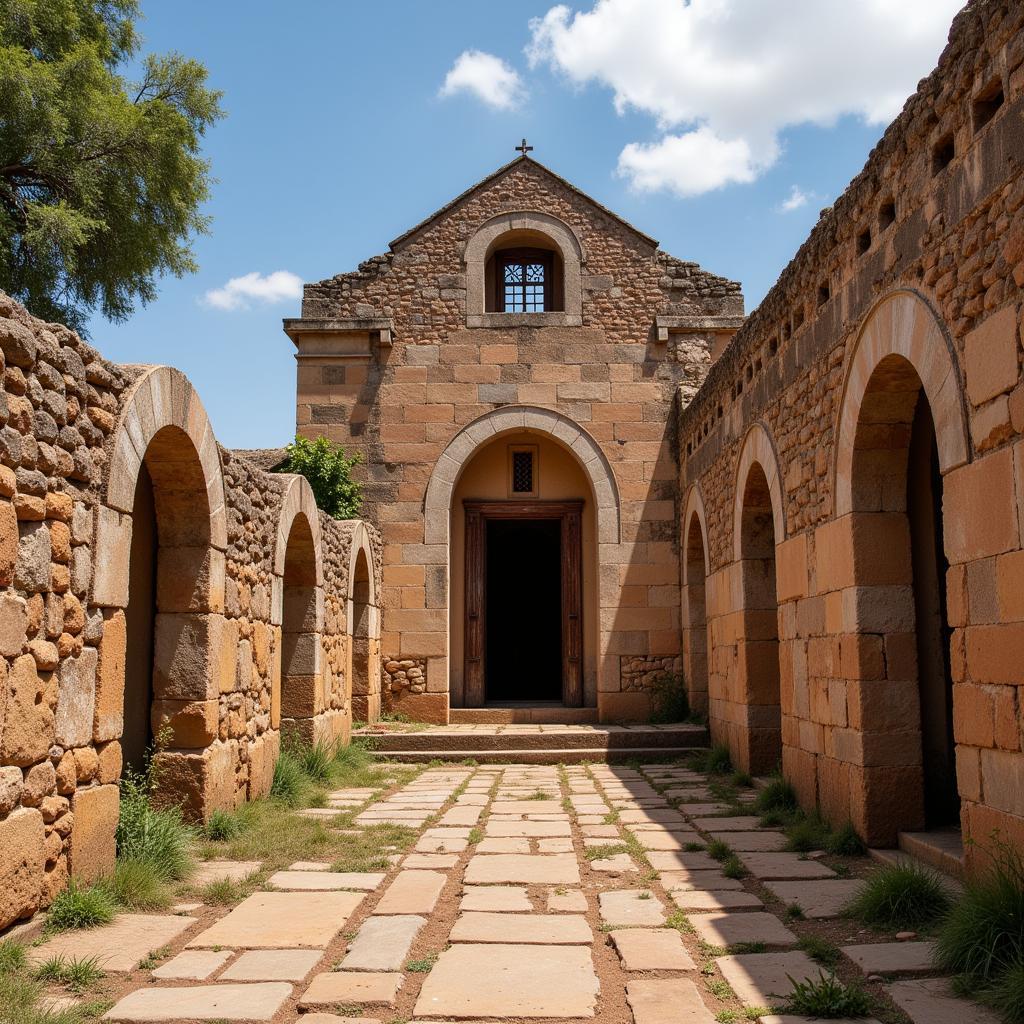African Acrostics: A Word in Edgeways
African acrostics offer a unique glimpse into the rich tapestry of the continent’s cultures, languages, and traditions. This creative wordplay, where the first letter of each line spells out a word or phrase, has been used for centuries in various forms across Africa, showcasing both linguistic ingenuity and profound cultural significance. From ancient proverbs to modern poetry, let’s explore the world of African acrostics.
Unveiling the Art of African Acrostics
Acrostics aren’t just a clever linguistic trick; they hold a deeper meaning, reflecting the values and beliefs of the communities that use them. They can be found embedded in storytelling, songs, and even everyday conversations. Why are African acrostics so prevalent? Because they serve as a powerful tool for memorization, education, and passing down wisdom through generations.
Acrostics in African Oral Traditions
In many African cultures, oral traditions are the cornerstone of preserving history and knowledge. Acrostics play a crucial role in this, making complex information easier to remember and transmit. Imagine learning about the history of a kingdom through a captivating poem where the first letter of each line reveals the name of each ruler! This technique not only aids memory but also adds an element of artistry to the narrative.
The Educational Power of African Acrostics: A Word in Edgeways
Education in traditional African societies often relied on creative methods like acrostics. Children might learn important moral lessons through proverbs structured as acrostics, or they might memorize complex genealogies through poems. This method made learning engaging and fostered a deep appreciation for language and its nuances. Consider the impact of learning the names of medicinal plants through an acrostic poem! This interactive approach is far more effective than rote memorization.
Acrostics in Modern African Literature and Poetry
The tradition of African acrostics has seamlessly transitioned into modern literary forms. Contemporary African poets and writers often employ acrostics to add layers of meaning to their work. They might use it to highlight a particular theme, emphasize a character’s name, or even embed hidden messages within their verses.
Exploring Different Forms of African Acrostics
The beauty of African acrostics lies in their diversity. From simple name poems to complex narratives, the form adapts to various creative expressions. Some cultures use acrostics in riddles and word games, while others incorporate them into religious chants and rituals. This versatility demonstrates the adaptability and enduring power of this ancient art form.
“Acrostics are a testament to the creativity and ingenuity of African languages,” says Dr. Abeni Okonjo, a renowned linguist specializing in African oral traditions. “They are more than just wordplay; they are a window into the soul of a culture.”
African Acrostics: A Legacy of Language and Culture
African acrostics, whether used in traditional storytelling or contemporary poetry, represent a powerful connection to the continent’s rich cultural heritage. They offer a fascinating glimpse into the ingenuity of African languages and the creative ways in which knowledge and traditions are preserved and passed down through generations. By understanding and appreciating this unique art form, we gain a deeper understanding of the diverse tapestry of African Life.
FAQ
-
What is an acrostic?
An acrostic is a poem or other composition in which certain letters in each line form a word or words. -
How are acrostics used in African cultures?
Acrostics are used in storytelling, education, proverbs, poetry, and even religious rituals. -
Why are acrostics important in African oral traditions?
They aid in memorization and the transmission of knowledge through generations. -
Can you give an example of an African acrostic?
While specific examples are complex, the concept is simple: the first letter of each line spells a word. -
Are acrostics still used in modern Africa?
Yes, they are frequently found in contemporary literature and poetry. -
What can we learn from African acrostics?
They offer insight into the creativity, linguistic skills, and cultural values of African societies. -
Where can I find more information about African acrostics?
Further research into African literature and oral traditions will provide more in-depth information.
Other related articles on our website:
- Exploring African Storytelling Traditions
- The Power of Proverbs in African Culture
- Modern African Poetry: A Celebration of Language
Need more assistance? Contact us:
Phone: +255768904061
Email: [email protected]
Address: Mbarali DC Mawindi, Kangaga, Tanzania
We have a 24/7 customer support team available to help.



